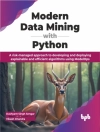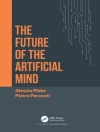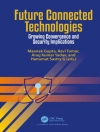This book introduces the development of the digital twin of the marine infrastructure in Norway, which will be a significant scientific and operational achievement for the industry, making efficient and safe offshore operations possible. It enables data exchange safely and easily between different sub-systems, modules, and various applications. A complete digital twin ship will be presented in details. Thus, the twin ship can provide an integrated view of the ship’s various physical and behavioral aspects in different stages, and allow simultaneous optimization of functional performance requirements. In addition, it enables advanced control and optimization, e.g., creating more reliable prediction for flexible objectives (time, output, emissions, fuel consumption), and executing day-ahead and long-term planning for operations.
More importantly, several related applications and case studies are presented in the end to confirm the effectiveness of the digital twin system. The research work is not only interesting for academia, also for industry.
Содержание
Introduction.- Part 1. Maritime Digital Twins.- Chapter 1. State of the Art.- Chapter 2. Co-simulation Mechanism as Digital Twins Platform.- Chapter 3. Data Collection and Transmission.- Chapter 4. Models and Sub-domain Models for Digital Twins.- Chapter 5. Enabling Tools for Onboard Support.- Part 2. Digital Twin Application and Case Studies.- Chapter 6. Remote Control Centre.- Chapter 7. Ship Docking and Motion Control.- Chapter 8. Simulation Based Pre-Training.- Chapter 9. PHM System.- Chapter 10. Demanding Pre-operation.- Chapter 11. Research Challenges.
Об авторе
1. Houxiang Zhang is a full professor and the leader of Intelligent Systems Laboratory, at the Department of Ocean Operations and Civil Engineering, Faculty of Engineering, Norwegian University of Science and Technology. He received his Ph.D. degree on Mechanical and Electronic Engineering in 2003. From 2004, he worked as Postdoctoral fellow, senior researcher at the Institute of Technical Aspects of Multimodal Systems (TAMS), Department of Informatics, Faculty of Mathematics, Informatics and Natural Sciences, University of Hamburg, Germany. In Feb. 2011, he finished the Habilitation on Informatics at University of Hamburg. Dr. Zhang joined the NTNU, Norway in April 2011 where he is a full Professor on Mechatronics. From 2011 to 2016, Dr. Zhang also hold a Norwegian national GIFT Professorship on product and system design funded by Norwegian Maritime Centre of Expertise. He was nominated and selected as a member of the Norwegian Academy of Technological Sciences in 2019, and a member of Academy of the Royal Norwegian Society of Sciences and Letters in Jan 2024. Dr. Zhang has engaged into several research topics including control, optimization, digitalization, and AI application especially on autonomous vehicle. He has applied for and coordinated more than 30 projects supported by Norwegian Research Council (NFR), German Research Council (DFG), EU, and industry. In these areas, he has published over 300 journal and conference papers as author or co-author. Dr. Zhang has received five best paper awards, and six finalist awards for best conference paper at International conference on Robotics and Automation.
2. Guoyuan Li is a full professor at the Department of Ocean Operations and Civil Engineering, Faculty of Engineering, Norwegian University of Science and Technology. He received his Ph.D. degree in computer science from the Institute of Technical Aspects of Multimodal Systems, Department of Informatics, University of Hamburg, Hamburg, Germany, in 2013. Since 2014, he has been with the Intelligent Systems Laboratory, Department of Ocean Operations and Civil Engineering, Norwegian University of Science and Technology (NTNU), Ålesund, Norway. He became an associate professor of ship intelligence, and further promoted to full professor at Department of Ocean Operations and Civil Engineering, NTNU, Ålesund, Norway in 2018 and 2021, respectively. Dr. Li has published more than 140 papers in the areas of his research interests which include locomotion control of bioinspired robots, digitalization, simulation and modelling, eye tracking analysis, and artificial intelligence and optimization algorithms in marine operation. Dr. Li has received two best paper award and two finalist award at IEEE international conferences.












